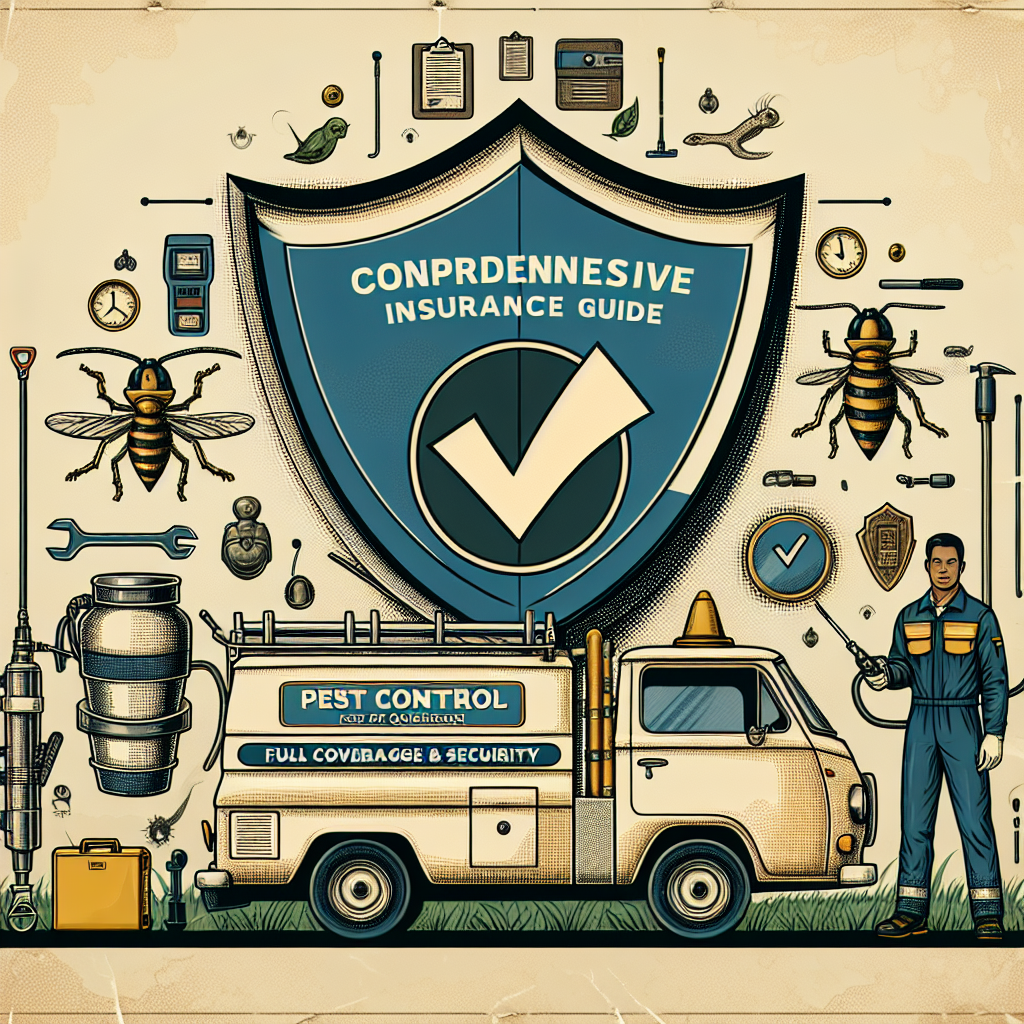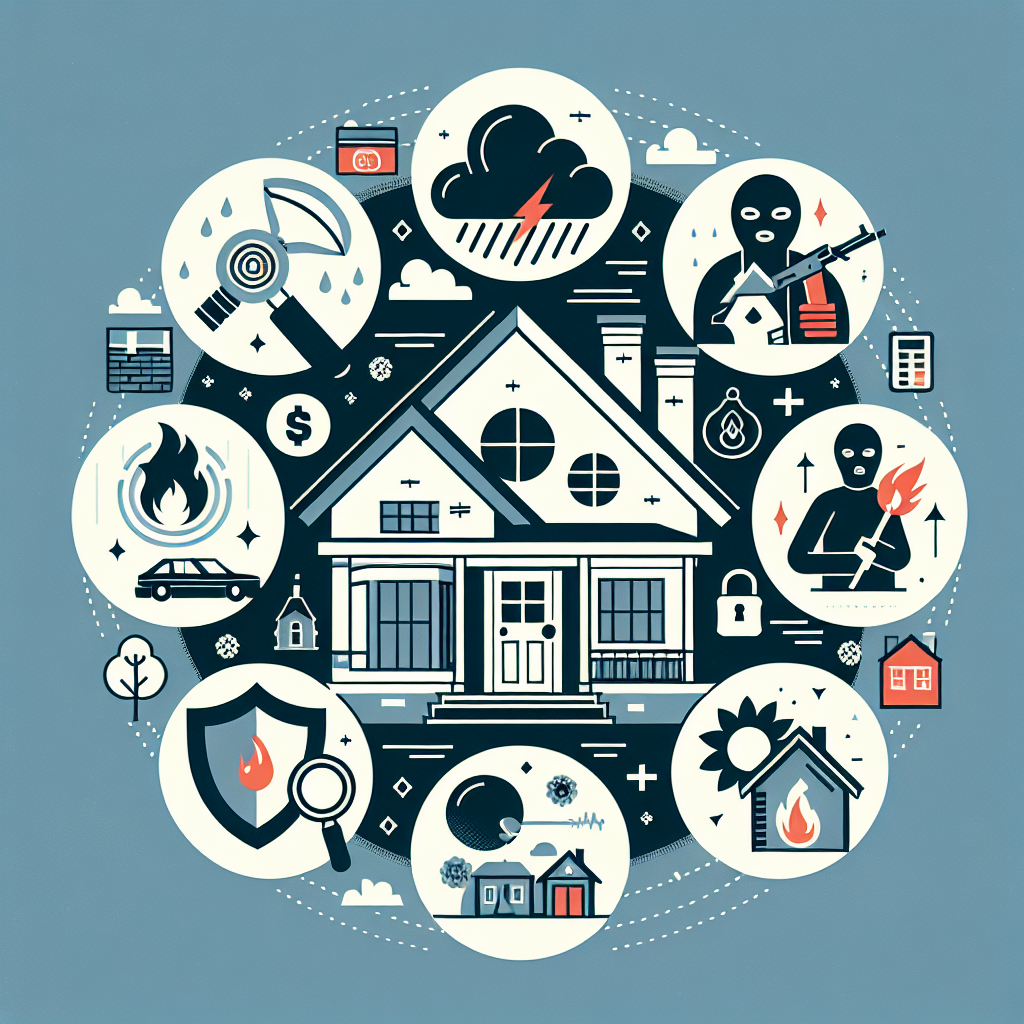Filed under Business Insurance on
Comprehensive Insurance Guide for Pest Control Businesses

Running a pest control business involves complex logistics and unpredictable challenges. With sharp competition and the inherent risks that come with dealing with pests and chemicals, it's crucial to safeguard your business against potential setbacks. One of the most effective ways to do this is through comprehensive insurance coverage. This guide will delve into the essential aspects of insurance specific to the pest control industry, helping you to make informed decisions that protect your enterprise and ensure its longevity.
Understanding the Importance of Insurance in Pest Control
Pest control businesses face unique risks, ranging from property damage and chemical spills to employee injuries and client disputes. Having comprehensive insurance is not merely a legal requirement in many areas but a sound investment in your business’s future. It offers peace of mind and financial security, allowing you to focus on your core operations without the constant worry of potential liabilities.
Why Comprehensive Insurance is Non-Negotiable
The pest control industry operates in a high-risk environment where unexpected events can lead to significant financial losses. Comprehensive insurance ensures you're protected from:
- Liability Claims: Protects against claims of property damage or bodily injury caused by your services.
- Employee Safety: Covers medical expenses and compensation for workers injured on the job.
- Property Damage: Safeguards your office and equipment from natural disasters, theft, or vandalism.
- Legal Fees: Covers the cost of legal representation or settlements in case of lawsuits.
Types of Insurance for Pest Control Businesses
The right insurance package involves various policies tailored to cover specific risks associated with the pest control industry.
General Liability Insurance
General liability insurance is indispensable for any business. It covers claims related to bodily injuries and property damage that occur as a result of your business operations. This insurance is vital for pest control businesses as accidents can happen during treatments, leading to potential claims from clients.
Professional Liability Insurance
Also known as errors and omissions insurance, professional liability insurance protects against claims of negligence, errors, or inadequate work. In pest control, a client might allege that your treatment didn't effectively resolve the pest issue or caused further damage, making this insurance critical for safeguarding your professional reputation and financial stability.
Workers' Compensation Insurance
This insurance is a must if you have employees. It covers medical expenses and lost wages resulting from work-related injuries or illnesses. Since pest control work often involves handling hazardous materials and equipment, ensuring your workforce is covered is crucial for both legal and ethical reasons.
Commercial Property Insurance
Commercial property insurance protects your business’s physical assets, including your office, equipment, and supplies. This is particularly important for pest control businesses due to the value and necessity of specialized equipment. Coverage can include damages from natural disasters, theft, and more.
Commercial Auto Insurance
This policy is essential for businesses that use vehicles to transport crews, chemicals, and equipment to job sites. Commercial auto insurance covers damages and liability associated with vehicle accidents, ensuring that your fleet and drivers are protected.
Pollution Liability Insurance
Unique to industries dealing with chemicals, pollution liability insurance covers third-party claims due to pollution caused during your services. This type of insurance can protect you against claims arising from chemical spills or contamination that may affect client properties or environments.
Choosing the Right Insurance Provider
Choosing the right insurance provider involves more than just comparing prices. Consider the following factors to ensure you select a provider that fits your specific needs:
Industry Specialization
Choose an insurer with experience in the pest control industry. They are more likely to understand the specific risks and can offer tailored policies that thoroughly cover your business needs.
Comprehensive Coverage Options
Ensure the provider offers a range of coverage options, from basic to comprehensive packages, allowing you to scale your coverage according to your business growth and risk exposure.
Customer Service and Support
Responsive customer support is crucial. Consider providers known for their excellent customer service, ease of claims processing, and availability of dedicated account managers.
Financial Stability
Research the financial standing of prospective insurers. A financially stable company inspires confidence that it can meet its obligations, especially crucial in case of large claims.
Navigating the Claims Process
Even with comprehensive insurance coverage, navigating the claims process can be complex. Here’s how to ensure a smooth experience:
Understand Your Policy
Before filing a claim, thoroughly understand your policy, including what is covered, any exclusions, and the claims process. This knowledge will save time and reduce stress during the claims phase.
Document Everything
Keep detailed records of all incidents, including photographs, witness statements, and any correspondence related to the claim. Proper documentation is key to a successful claims process.
Proactive Communication
Maintain open lines of communication with your insurance provider. Immediate reporting of claims and regular follow-ups can expedite the process and enhance resolution satisfaction.
Common Questions About Pest Control Insurance
Business owners frequently have questions about pest control insurance. Here are some common queries addressed:
Is insurance mandatory for pest control businesses?
While requirements can vary by location, many areas mandate certain types of insurance for pest control businesses, such as liability and workers' compensation insurance.
How can I reduce my insurance premiums?
Implementing rigorous safety and training programs can lower premiums by reducing the risk of claims. Regular equipment maintenance and adopting eco-friendly practices may also lead to premium discounts.
What happens if I don’t have adequate insurance?
Lack of sufficient coverage can result in devastating financial consequences, including bankruptcy from legal settlements and damage claims. It also risks non-compliance penalties if insurance is legally required.
Conclusion
Comprehensive insurance for pest control businesses is an essential part of your risk management strategy. By understanding the types of coverage available and how to choose the right provider, you can protect your assets, workforce, and reputation. As with any business decision, due diligence and a proactive approach to risk management will ensure that your pest control business remains resilient and competitive in an ever-evolving industry landscape.
Remember, investing in quality insurance today can safeguard your business and provide peace of mind for the future.





